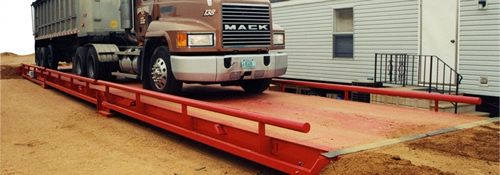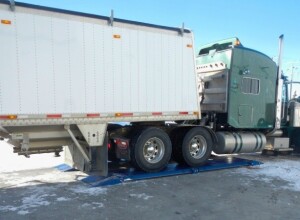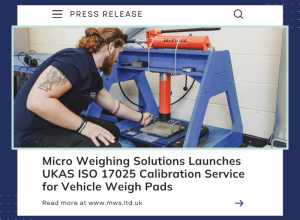If you are in the transport business, your trucks will carry material from point A to B and that needs to happen timely as well as safely. In order to avoid over-loading your truck and to ensure its safe transit, you need to make sure that the truck is not overloaded. Over loading of the vehicle can reduce the life of the truck and cause a lot of collateral damage. Furthermore, extra loading of the trucks may also spoil the tarmac roads, and hence, it is prohibited by the government. This is where truck scales come in. Truck scales provide you with a wide range of weighing solutions that include weighing concrete, rock and other aggregates. So you can make sure how much weight your vehicle is carrying.
The 101 of taking care of your truck scales:
You now know how invaluably important truck scales are to you. That’s why you should follow a preventive maintenance program for them. Correctly serviced weighing equipment reduces the likelihood of inaccurate readings, which can result in under- or overcharging. Further, regular preventative maintenance reduces the likelihood of damage to the scale, which in turn can lead to excessive downtime, costly equipment repairs and lost profits.
Here’s a breakdown of the truck scales maintenance program:
Daily Chores:
- Check the truck scales platform to ensure that it is free from debris.
- Make sure that the side and end frames are not tampered with.
- Also check if the digital display reads EXACTLY zero.
- Make sure that when the vehicles are mounting the platform, they do so slowly and steadily to avoid causing damage to the weighing platform.
- Ensure that the load cell assembly is free from debris build-up.
- A weekly weigh check will go a long way. This can be done using a loaded vehicle, comparing the vehicle’s weight when weighed at each end of the truck scale with its weight at the center of the platform. Any discrepancies of ±2 indicated divisions need to be reported to avoid future inaccuracies.
- Periodically rebalance the scale, reset it to zero.
- Make sure that the platform is in place after the last inspection. If it has moved excessively since the last inspection, it should be reported to the maintenance service provider.
- Check for structural damage. Are there cracks in the foundation; are the load cell cables in place? Any sign of damage should be reported to the service provider and immediately sorted out for smooth functionality.
- NEVER carry out electrical welding, especially on the load cells or weigh bars; consult a professional first.
- Keep your truck scales clean and free from debris.
- And most importantly, the quality of your truck scales also counts. Always purchase the best.
- Keep an eye out for checking the foundation and the scale deck.
- Keep an eye out for gravel trapped between the foundation and the scale deck. If your scale has checking devices, ensure that these are working as well.
- Make sure that your scale is calibrated properly.
- Rods should be inspected to determine that the attachment points are solid, and the binding should be inspected as well.
- Check hardware to ensure that the nuts are tight, rods are level, and to ensure there’s no rust, corrosion, or distortion.
Finally, routine scale calibration is crucial to your scale’s operation. Routine calibration ensures accurate readings, as well as compliance with state and federal road regulations for vehicle axle weight, and gross vehicle weight.
The amount of calibration required for your truck scale depends largely on four main factors:
- Number of weighs per day
- Number of days the scale is in use
- Price of the products being weighed
- Acceptable error rate
- Number of weighments per day
- Price of the product being weighed
- Number of days the scale is used annually
- Acceptable error rate
Author Bio:

Kevin Hill heads up the marketing efforts and provides technical expertise to the sales and service teams at Quality Scales Unlimited in Byron, California. He enjoys everything mechanical and electronic, computers, the internet and spending time with family.
Image Source: insidethecircle.net



























Interested? Submit your enquiry using the form below:
Only available for registered users. Sign In to your account or register here.